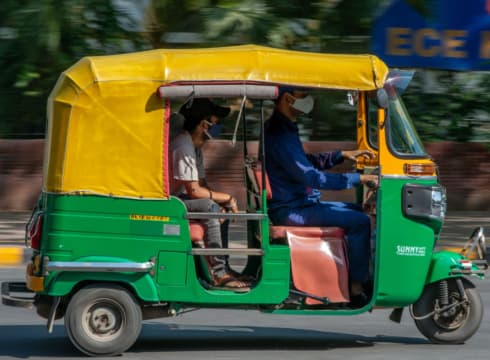The state transport department issued a notice to these companies directing to discontinue auto services on receival of overcharging complaints
The transport department said that the cab-aggregator apps have been granted the licence to run only taxis and not autos
“We have received a notice from the Road Transport Authority, and we will be responding to it within the stipulated time”: Rapido Spokesperson
Inc42 Daily Brief
Stay Ahead With Daily News & Analysis on India’s Tech & Startup Economy
Following the Karnataka Government’s order to stop auto services in Bengaluru, ride-hailing apps including Ola, Uber and Rapido are unlikely to cease their services in the city. Further, these companies are planning to respond to the notices within three days, ET reported, citing multiple company executives.
The state transport department issued a notice to these companies on Thursday after it received complaints about them overcharging customers for auto rickshaw rides. It asked to stop auto services within three days.
“We have received a notice from the Road Transport Authority, and we will be responding to it within the stipulated time,” a Rapido spokesperson told Inc42.
The transport department received complaints against the aggregators for charging a minimum of INR 100 for auto rides for even a distance within 2 kilometers, the transport department called such charges an ‘illegal practice’ in its notice.
Reasons Behind The Calling Of The Ban
Besides inflating charges for rides, the transport department also said that the cab-aggregator apps have been granted the licence to run only taxis and not autos and hence they were in violation of the Karnataka On-Demand Transportation Technology Aggregators Rules, 2016 by running auto services.
As per government mandate, the minimum auto fare is fixed at INR 30 for the first two kilometers, and INR 15 for every subsequent kilometer.
The allegations being made regarding extra money charged by Rapido on auto taxi fares are completely false, the Rapido spokesperson added. “All our fares are determined in accordance with the fares decided upon by the state government, and Rapido is not charging any extra money over those fares,” the spokesperson said.
Assuring Unit Economics By Increasing Convenience Fees
While the debate is around the pricing of rides, ride-hailing companies used to charge a convenience fee between INR 10-15 earlier. As the companies have started to focus more on profitability and unit economics, there has been a rise in convenience fees.
“Even when you buy a movie ticket, platforms charge you a convenience fee because you can buy tickets from the convenience of your home, the same way autos come to your doorstep, that has been the legal thinking behind it,” a ride-hailing executive said as quoted in the ET report.
Despite the popularity of ride-sharing apps, these players have been seeing a rise in customer complaints around surge charges, booking cancellation, among other issues.
Last month, the Competition Commission of India (CCI) also directed cab aggregators to adopt self-regulatory measures to address concerns around surge pricing. In an advisory, the CCI also asked them to formulate a clear and transparent policy on sharing surge pricing revenue between drivers and ride-hailing apps.
The online taxi services market in India was valued at INR 30.72 Bn in FY20, according to a report. With an estimated compound annual growth rate (CAGR) of about 12.93% during the FY21-FY25 period, the market is estimated to reach a value of INR 55.15 Bn by FY25.
{{#name}}{{name}}{{/name}}{{^name}}-{{/name}}
{{#description}}{{description}}...{{/description}}{{^description}}-{{/description}}
Note: We at Inc42 take our ethics very seriously. More information about it can be found here.


